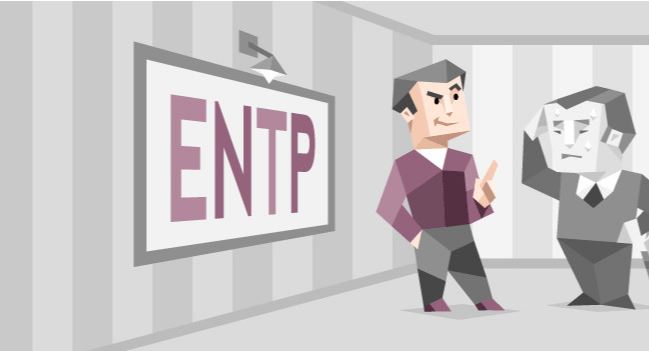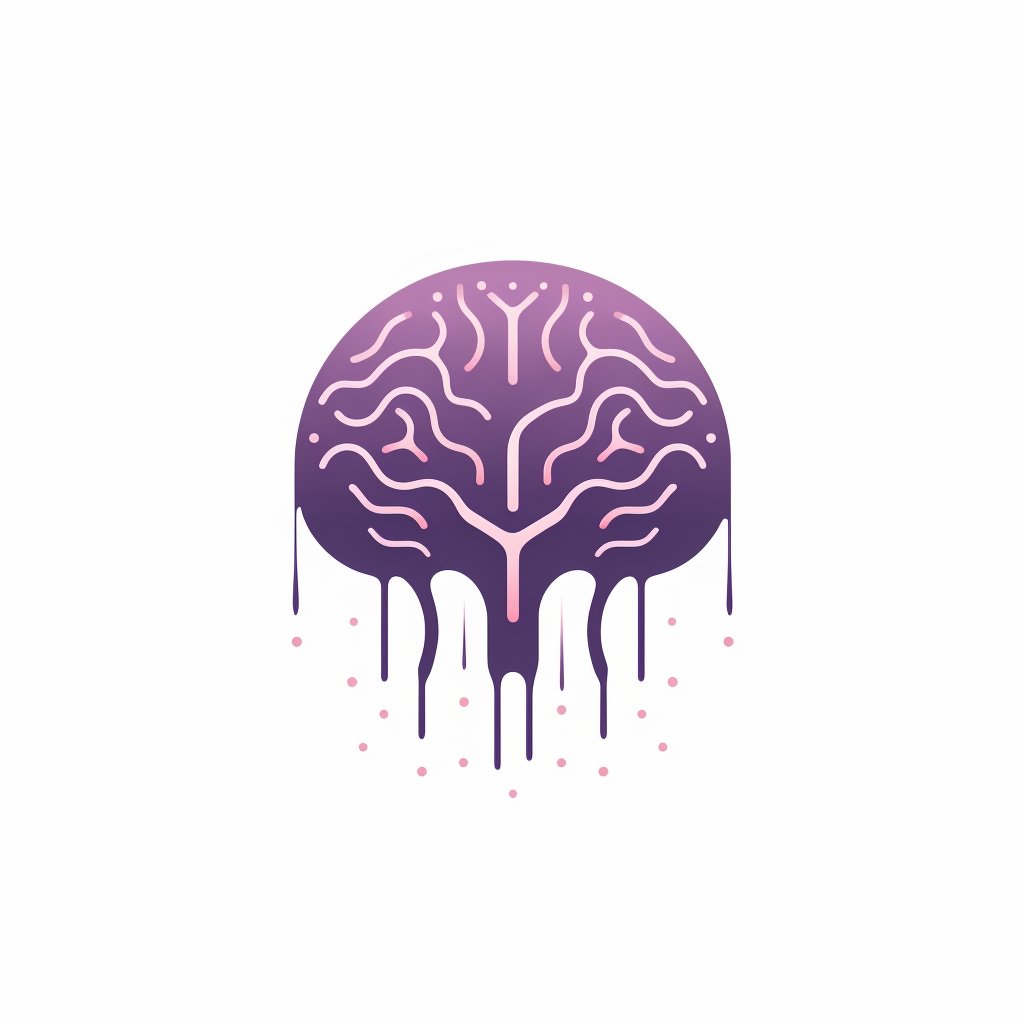Navigating ENTP ADHD: A Guide to Success

ENTPs are known for their innovative thinking, adaptability, and a penchant for exploring new ideas. ADHD, encompassing traits of inattention, hyperactivity, and impulsivity, poses unique challenges in various life domains.
The focal point of our inquiry is the intersection of these two dynamics, seeking to elucidate the intricate relationship between ENTP and ADHD. Through this exploration, we aim to unravel how the distinctive qualities of the ENTP personality may interact with and be influenced by the complexities of ADHD.
ENTP Personality

A thorough examination of the ENTP personality unveils a distinctive combination of traits. Defined by Extroversion, Intuition, Thinking, and Perceiving, ENTPs embody a profile marked by:
- Innovative Thinking: ENTPs excel in generating creative solutions and exploring novel ideas.
- Adaptability: Their flexible nature enables seamless navigation through diverse situations.
- Quick-Wittedness: Possessing a sharp intellect, ENTPs engage in insightful and dynamic conversations.
- Entrepreneurial Spirit: The entrepreneurial mindset inherent to ENTPs propels them towards embracing new opportunities and envisioning possibilities.
However, this dynamic personality type is not devoid of challenges:
- Tendency Towards Procrastination: Driven by expansive curiosity, ENTPs may grapple with prioritization.
- Risk of Overthinking: Overanalyzing situations may lead to decision-making challenges.
| For ENTPs: ENTP and Depression
Do ENTPs have ADHD?

What is ADHD?
Attention Deficit Hyperactivity Disorder (ADHD) is a neurodevelopmental disorder characterized by persistent inattention, hyperactivity, and impulsivity. It affects millions of children and adults worldwide and is often diagnosed in childhood.
Common Signs and Symptoms of ADHD
The core symptoms of ADHD can be divided into three categories:
- Inattention: Difficulty focusing, easily distracted, forgetful, daydreaming
- Hyperactivity: Restlessness, fidgeting, excessive talking, difficulty sitting still
- Impulsivity: Acting without thinking, making rash decisions, difficulty waiting
| Read more: Is Echolalia a Symptom of ADHD?
Prevalence of ADHD in ENTPs
Some studies have suggested that there may be a higher prevalence of ADHD in ENTPs, which are known for their enthusiasm, creativity, and independence. However, more research is needed to confirm this.
The exact cause of ADHD is unknown, but it is believed to be a combination of genetic and environmental factors. There is no cure for ADHD, but there are effective treatments available, including medication, therapy, and lifestyle changes.
How ADHD Can Manifest in ENTP Individuals
ENTPs with ADHD may experience challenges with:
- Focus and attention: They may have difficulty staying on task and completing projects.
- Organization: They may be disorganized and forgetful.
- Impulsivity: They may make rash decisions or act without thinking.
- Emotional regulation: They may have difficulty controlling their emotions.
Despite these challenges, ENTPs with ADHD can also be very successful. Their creativity, independence, and problem-solving skills can be valuable assets in many areas of life.
Did you know ADHD often diagnosed in childhood?
Read the guide below to gain insights:
ADHD in Children: Managing Strategies + Real-Life Stories
ADHD and ENTP Personality

ENTP Traits and ADHD Symptoms
ENTPs, also known as “Visionaries” or “Debaters,” are one of the 16 personality types identified by the Myers-Briggs Type Indicator (MBTI). They are characterized by their intellect, creativity, and problem-solving abilities. These traits, while advantageous, can also overlap with some of the symptoms of ADHD.
| Learn more: Anxiety vs. ADHD in Adults
Potential Benefits of ENTPs with ADHD
ENTPs with ADHD may benefit from their:
- Enhanced creativity and problem-solving skills: Their ability to think outside the box and generate novel ideas can be amplified by ADHD’s tendency to foster divergent thinking.
- High energy and enthusiasm: Their energetic nature can drive them to pursue their passions and tackle challenges with vigor.
- Independent and resourceful nature: Their ability to think for themselves and find solutions independently can be beneficial in managing ADHD symptoms.
Potential Challenges of ENTPs with ADHD
ENTPs with ADHD may face challenges associated with:
- Impulsivity and distractibility: Their tendency to act without thinking and get easily distracted can hinder their ability to focus and complete tasks.
- Emotional reactivity: Their sensitivity to external stimuli can lead to emotional outbursts and difficulty regulating their emotions.
- Disorganization and procrastination: Their tendency to get sidetracked and put off tasks can make managing daily life more difficult.
Which MBTI personality types are more prone to ADHD?
Read in our ultimate guide below:
ADHD and MBTI | A Comprehensive Overview
Coping Strategies for ENTPs with ADHD

ENTPs with ADHD often face challenges related to focus, organization, and emotional regulation. However, they can overcome these challenges by developing effective coping strategies tailored to their unique personality type.
Specific Challenges for ENTPs with ADHD
- Sustained Focus: ENTPs may struggle to maintain focus on tasks that don’t align with their interests or require sustained attention.
- Task Management: Their tendency to jump from one idea to another can make it difficult to manage multiple tasks and meet deadlines.
- Emotional Regulation: Their sensitivity to external stimuli can lead to emotional outbursts and difficulty managing their emotions.
| Discover: ADHD Parenting Tips
Practical Coping Strategies for ENTPs with ADHD
ENTPs with ADHD can effectively manage their symptoms and achieve their goals by implementing practical coping strategies tailored to their personality type. These strategies can be categorized into three main areas:
1. Enhancing Focus and Attention
- Identify Interests: Capitalize on their natural curiosity by aligning tasks and projects with their interests, making them more engaging and stimulating.
- Set Realistic Goals: Break down large goals into smaller, achievable steps to avoid feeling overwhelmed and maintain motivation.
- Utilize Technology: Leverage technology to their advantage, using apps, timers, and reminders to stay on track and manage time effectively.
- Prioritize Breaks: Schedule regular breaks throughout the day to refresh their minds, recharge their energy, and enhance their ability to focus.
2. Improving Organization and Task Management
- Create Structure: Establish clear routines and schedules for daily activities, providing a sense of structure and reducing decision fatigue.
- Maintain a System: Develop a system for organizing tasks, projects, and important information, ensuring they can easily locate and manage their commitments.
- Utilize Visual Aids: Employ visual aids, such as to-do lists, calendars, and mind maps, to organize their thoughts and prioritize tasks effectively.
- Seek Assistance: Delegate tasks when possible and seek assistance from others when needed to avoid feeling overwhelmed and maintain productivity.
3. Promoting Emotional Regulation and Well-being
- Practice Self-awareness: Cultivate self-awareness by identifying triggers and patterns that contribute to emotional reactivity.
- Develop Self-regulation Techniques: Practice self-regulation techniques, such as deep breathing exercises and mindfulness practices, to manage stress and emotional outbursts.
- Prioritize Self-care: Engage in activities that promote overall well-being, such as physical exercise, healthy eating, and adequate sleep, to enhance emotional resilience.
- Seek Professional Support: When needed, seek professional support from therapists or counselors who specialize in ADHD and emotional regulation.
By implementing these practical coping strategies, ENTPs with ADHD can effectively manage their symptoms, enhance their focus, improve organization, regulate their emotions, and achieve their full potential.
Does Coffee or Caffeine Good for ADHD or Make It Worse?
Read in our comprehensive guide below:
Treatment Options for ENTPs with ADHD

While coping strategies can significantly enhance an ENTP’s ability to manage ADHD symptoms, professional treatment is often necessary for optimal outcomes.
Conventional ADHD Treatments
Conventional ADHD treatments typically involve a combination of medication and therapy. Medication, such as stimulants and non-stimulants, helps regulate brain chemistry and reduce ADHD symptoms. Therapy, such as cognitive-behavioral therapy (CBT), teaches individuals coping skills and strategies for managing attention, organization, and impulsivity.
ENTP Traits and Treatment Effectiveness
ENTPs’ unique personality traits can influence their response to treatment. Their curiosity and openness to new experiences may make them more receptive to alternative treatment approaches. Additionally, their tendency to think creatively and solve problems can be an asset in therapy, as they can actively participate in developing personalized treatment plans.
| Learn about: ADHD Impulsive Break Up
Alternative/Complementary Treatments
Alternative or complementary treatments may be suitable for ENTPs seeking additional support or those who prefer a more holistic approach. These options include:
- Neurofeedback: A technique that helps individuals train their brain waves to improve self-regulation and focus.
- Mindfulness-based interventions: Practices like meditation and yoga can promote emotional regulation, reduce stress, and enhance focus.
- Dietary modifications: Certain dietary changes, such as reducing sugar intake and increasing omega-3 fatty acids, may positively impact ADHD symptoms.
- Exercise: Regular physical activity can improve overall well-being, reduce stress, and enhance focus.
ENTPs should explore these alternatives under the guidance of a healthcare professional to ensure they are safe and compatible with their treatment plan.
Suggestion…
HealWiser’s Last piece of Advice
As an ENTP, managing ADHD requires a balance between harnessing your unique strengths and developing effective coping strategies. Remember that ADHD is not a limitation but a unique aspect of your personality that can be managed with the right approach.
Channel your curiosity into exploring your passions, turning tasks into stimulating adventures. Leverage your problem-solving skills to devise creative solutions to challenges. Utilize your energy and enthusiasm to tackle projects with vigor.
Prioritize self-awareness by identifying triggers and patterns that contribute to emotional reactivity. Practice self-regulation techniques to manage stress and emotional outbursts. Break down large goals into smaller, achievable steps to avoid feeling overwhelmed. Utilize technology to your advantage for organization and time management.
And lastly, don’t hesitate to seek professional guidance from healthcare providers and therapists specializing in ADHD and ENTP personality traits. Their expertise can help you develop personalized treatment plans and coping strategies tailored to your unique needs.
Sharing your experiences can provide valuable insights and emotional support. So…
…share your experience with Heal Wiser and others in the comments section below this post.





